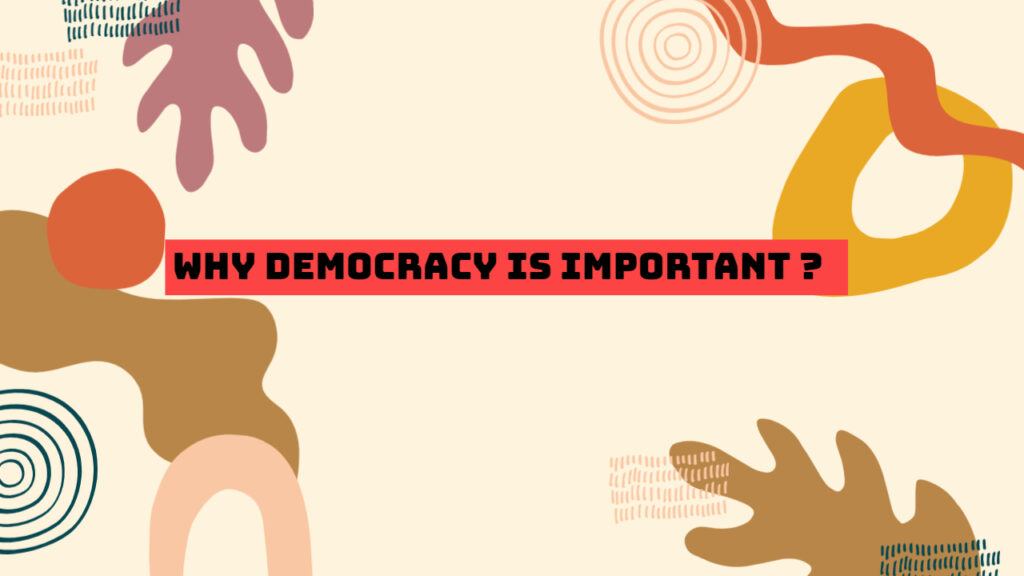
Why are elections important?
The purpose of election at National level twofold first is to choose the head of government or chief executive and the board policy that the government will pursue second is to choose the members of the represented assembly legislature or parliament who will decide on legislation and taxation and analyze the work of the government on top people’s behalf.
In a presidential system the president is head of the government these two purpose are clearly distinguished by having separate election for president and members of the Legislature such election may or may not take place at the same time.
In a prime ministerial or parliamentary system M1 site of election will fulfill both purposes Saints it is the elected members of parliament who will determine the head of the government on the basis of which party leader can win majority support in Parliament.
Elections and popular control
The regular election of these public officials in an open and competitive process constitutes the chief instrument of popular control in a present dative democracy. Elections demonstrate that political power derives from the people and is held in trust for them and that it is to the people that politicians must account for their actions.
In the last resort only the possibility of being turn out of office and shows that those elected fulfill their trust and maintain the standard of public office and guarantees those changes in the personal and policies of Government that changing circumstances status require.
Should the Head of the State be popularly elected?
The office of head of state should be largely ceremonial and representing the unity of the nation above the competition of party the continuity of the state above the changeability of governments the permanence of the Constitution above. The temporality of particular legislation this symbolic function can attend a special importance at moments of national crisis or constitutional controversy when the Head of State may come to exercise considerable Discretionary power.
Different systems
In a presidential system the elected president combined the ceremonial function of head of state with the executive function of head of government as in (Russian the USA and most Latin American countries).
In a parliamentary Republic the head of state will be a non-executive President elected either directly or by Parliament as in (Germany Ireland India). In a constitutional monarchy the head of state will be determined by hair duty and will hold office for life (as in Belgium Spain the UK).
No best one
Which of these is best? There is no simple answer as each has to be assessed in the context of our constitutional system as a whole. The executive Presidency has the disadvantage that the head of state it is not isolated from the controversy of the day-to-day politics or the odium of unpopular or failed policies.
On the other hand a non-elected energy is hardly a democratic institution especially where it constitutes the apex of a system of landed wealth and aristocratic status. At the very least should have been subject to approval by popular referendum and it is Progrative should be carefully Delimited by written constitution.
What other public offices should be popularly elected?
Since the elected chief executive is responsible to the public and to Parliament for the conduct and competence of all civil servants in the employ of a national government there is a strong argument for making such posts subject to appointment from above rather than election from below provided the initial recruitment to them is open to any qualified member of society.
However a democracy also requires a public services that are responsive to local needs and to the viability of local circumstances. Here lies the justification of having elected bodies to supervise the administration of local services health education the police and so on and to take responsibility for local government in general.
Elections and the Judiciary
Should the Judiciary be elected? At first sight constancy would seem to require that just as the legislature and Chief Executive are popularly elected so should the Judiciary be. However, the Judiciary forms a legal rather than of political function whose virtue lies in consistency and impartiality rather than popularity the tensioner of office should be immune from Popular disapproval or the danger of becoming too closely identified with a particular section of the community.
It is the task of Parliament to ensure that legislation the levels of sentence etc. Remain in touch with public opinion not that of the Judiciary itself at the same time the pattern of recruitment to the Judiciary is a matter of that made democratic concern specially it works to disadvantage substantial section of society such as women are members of ethnic for other minorities.
Should anyone be excluded from the right to vote?
The usual exclusions operating in the most democracy as our children criminals and foreign residences this is a very mixed bag and different region clearly apply for each category.
The exclusion of children below of a teenage is justified by both common sense and development psychology below a certain age most children do not have sufficient experience. Or sufficient sense of the longer term consequence of their choices to be treated non- Paternalistically.
In the most societies there is a clustering of rights with children attain together and which define adulthood : right to marry to own property to initiate legal proceedings in once on person and to vote these usually coincide around the age of 18 with the latest age for leaving Secondary School and the obligation for Military Service.
